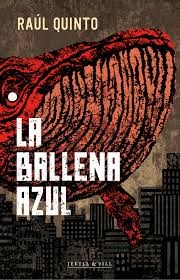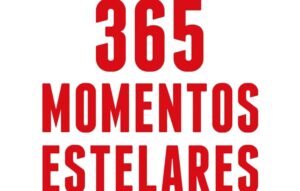Original Language: Norwegian
Títutulu Original: We are not here to have fun
Year of publication: 2022
Translation: ANA FILECH MARCO
Valoración: advisable
Knut Pettersen is a middle -aged Norwegian writer -a rather passage sporadically in an elderly residence- as in regards to their love, family and social relationships … come on, that his life would be similar to the slow rolling of a stone on the slope of an arid mountain. In these, he receives the invitation to an important literary festival, with the disadvantage that he must participate in a colloquium on the infidelity with the husband of his ex-wife and, worse, to a writer who described an alleged episode of sexual harassment by his part in a self -fiction novel (so he could not defend himself legal or almost publicly from such accusation). Acted by his economic situation, but also for his desire to be part of the literary world, Knut goes to the festival with his friend and neighbor Frank.
From this premise, Nina Lykke makes us accompany the very neurotic and depressed KNUT during the days before such an event, which causes considerable anxiety, added to the bitterness and disenchantment caused by her professional and family situation, in addition to her Vital pessimism, in general. With such overwhelming backpack, Knut faces the changing and disconcerting world that surrounds him with caustic reflections in his lucidity about what he finds and also – it is not less important – about the memories of his past behaviors. However, and although the novel is ironic and even scathing about certain excesses of “feminism” (I put it in quotes because I do not dare to affirm that it is attitudes of true feminism … although I do not dare to determine what It consists of “true feminism”), the so -called “wokism” or, without further ado, the posture of a certain intellectuality that always tries to swim and save clothes, this is not a book that intends to fight in the cachareate “Cultural War” to the that they are forcing us to attend in recent times (despite what the occasional extremocentrist opinion that has reviewed it). Nor is its author one of those outraged women who are preparing to go in defense of the berosexual white male and pitopaúsico of medium age; Among other things, because it presents its protagonist, rather than a noble and misunderstood being, as a somewhat gilipollas type (in the most affectionate sense of the term, if there is): if Knut’s life is a disaster , in large part it is his fault … which does not mean that we cannot feel empathy and even some love for him, which is not a monster, but a harmless and rather faint -hearted individual (although not throughout the novel, but not I want to advance anything).
Actually, I would say that, more than a vision or claim of the point of view of white, heterosexual, etc., what we find in this novel is the point of view (generalizing much, of course it is) of the generation that was born in the 60s and became adult in the very modern and groundbreaking 80, to arrive or even overcome the median age and realize that they are no longer modern or groundbreaking and that the world has changed, leaving them behind or, at least, demode. Ok, boomer, which was said not long ago (I suspect that the expression is already demodé), But what is all this? Well, because the author of the novel has, by chance, the same age as the protagonist and it can be assumed that he commune with many of his angry thoughts, although I already know that, in purity, they belong to a fictional character and not They have to share them. However, at least they have occurred to her, probably fruit of observation and listening to her contemporaries.
That this is not understood as a negative criticism of the book, eye; In fact, I can also share some of Knut’s reflections
(It is what is being made old) and, in any case, the novel results, if not hilarious, quite funny, as a good fiction with the typical metepatas character, combined here with the -cas- Viejales Cascarrabias. In addition (and I recognize that with this he won me) to release several inventives against the fulfill Irony seems to give way to sarcasm, the writer of reality. Too bad, anyway, not know more about the Norwegian literary ambient, to fully enjoy the malice of Doña Nina Lykke, although well, it is expected to be quite similar to that or any other country. Of course, with better salmon canapés, I suppose.
I know that there will be those who think, perhaps rightly, that as a man who I am I have no right to comment on a novel written by a woman and translated by another (the roof seems to be made by a maromo), although he tries on a character of My same species … but as, after all, I think the tone of the review is quite positive towards the book, I am sure that, at least on this occasion, neither of them will seem bad.
Source: https://unlibroaldia.blogspot.com/2025/02/nina-lykke-no-hemos-venido-divertirnos.html


